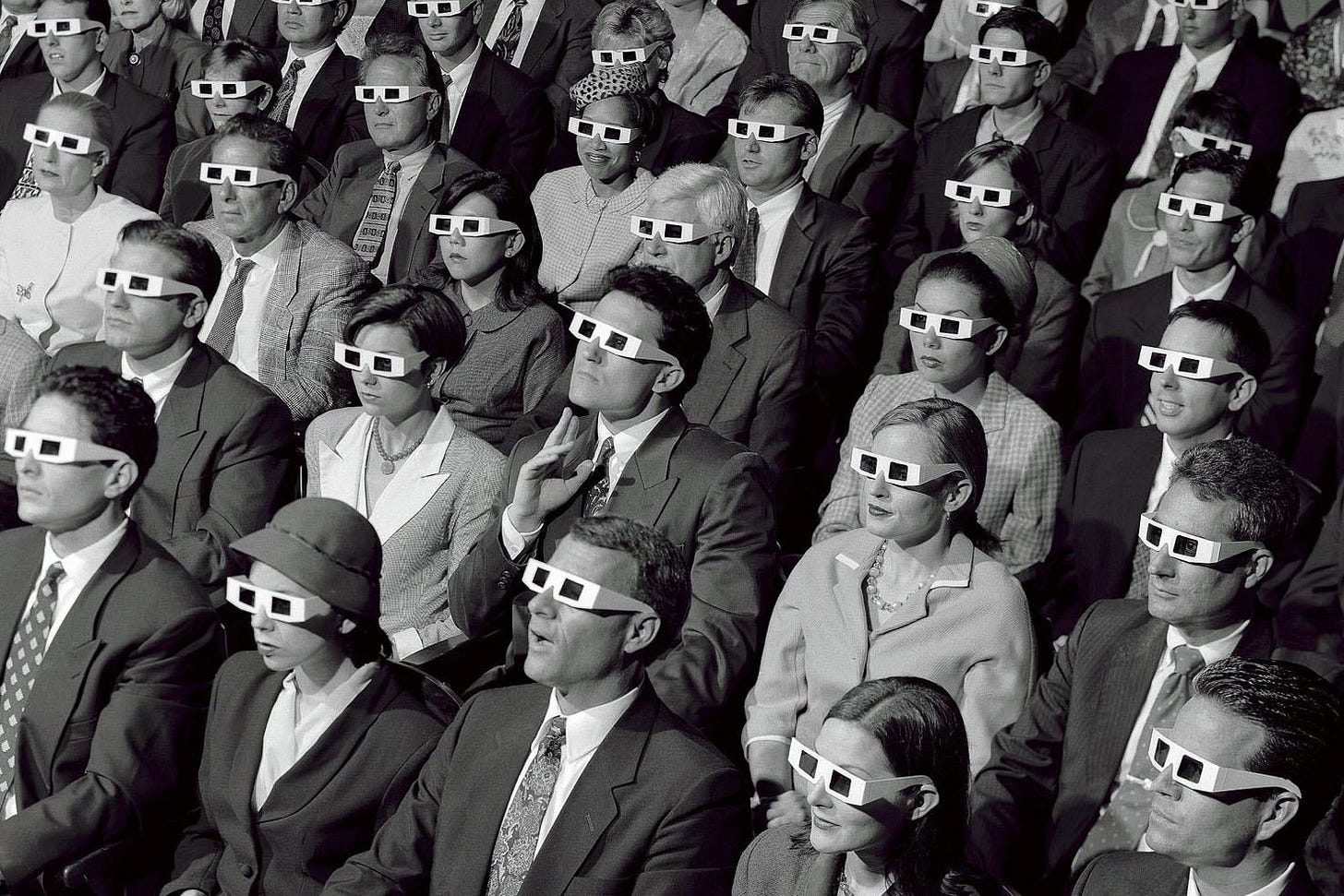Guy Debord's Prophecy
How Social Media Creates The Spectacle That Controls You
Have you ever felt like you're performing your life instead of living it? Posting the perfect vacation photo, meticulously crafting witty comments, curating an online persona that feels… slightly off? Over 50 years before the first social media app, the French philosopher and radical thinker Guy Debord diagnosed this exact condition. In this deep dive, we explore Debord's groundbreaking 1967 book, "The Society of the Spectacle," and reveal how its predictions have come true in the age of social media addiction.
The Oracle of the Spectacle
Imagine a world where reality is not directly experienced, but rather mediated by images. Where the "real" is replaced by representations, and these representations dictate how we see ourselves and the world. This, in essence, is the "Spectacle," as defined by Debord. He saw it rising in the mid-20th century, fueled by the rise of mass media and consumerism. But how could he have foreseen the hyper-mediated world we inhabit today? More importantly, why is it so important to understand?
From Television to the Tiny Screen
Debord's analysis wasn’t just about what we see; it was about how we see. He argued that the Spectacle was a social relation, a way of organizing society through images and commodities. Early forms of the Spectacle, like television, offered a one-way flow of images. The viewer was a passive consumer of the spectacle. But social media has fundamentally changed the game.
Now, we are not just consumers; we are producers of the Spectacle. We create and share images, constantly broadcasting our lives. The platforms themselves become the arenas, and our profiles become the stages. This isn't just a technological shift; it's a fundamental change in how we relate to reality.
Want to understand the core concepts quickly and visually? Check out this video to see the Spectacle in action:
The Illusion of Connection
Debord identified a shift from "being" to "having," where our value was measured by our possessions. Today, social media has accelerated this to a new stage: "appearing." We are constantly striving to appear successful, happy, and connected, often at the expense of genuine experience and connection. But what are the costs of this constant performance?
Anxiety and Comparison: The curated realities we see online lead to constant comparison and feelings of inadequacy.
Superficial Relationships: Online interactions often lack the depth and nuance of face-to-face communication.
Loss of Authenticity: We mold our personalities to fit the expectations of the Spectacle, losing touch with our true selves.
This relentless pursuit of online validation leaves us feeling more isolated and disconnected than ever before.
The Commodification of Attention
Social media platforms are not simply tools; they are businesses. And their product is your attention. They use sophisticated techniques, like digital dopamine loops and variable-reward schedules (think of the endless scrolling), to keep you engaged. Your clicks, likes, and shares are the currency. The Spectacle, in this context, isn't just a philosophical concept; it's an economic engine.
"The Spectacle is not a collection of images, but a social relation among people, mediated by images." - Guy Debord
This is the core of Debord’s analysis. It is about more than just the images we see. It’s about the relationship we have with those images and with each other.
Reclaiming Reality: Breaking Free from the Spectacle
So, how do we break free from the Spectacle? Debord's work doesn't offer easy answers, but it provides a critical framework for understanding the problem. Recognizing the forces at play is the first step. This awareness empowers us to make conscious choices about how we engage with technology and the digital world.
Practice Digital Minimalism: Be mindful of your screen time and limit your exposure to social media.
Cultivate Real-World Connections: Prioritize face-to-face interactions and deepen your relationships with others.
Question the Images: Critically evaluate the messages and values promoted by the Spectacle.
Embrace Authenticity: Focus on living a life that is true to your values, not just what is "likeable."
Unlock deeper insights with a 10% discount on the annual plan.
Support thoughtful analysis and join a growing community of readers committed to understanding the world through philosophy and reason.
The Enduring Relevance of Debord's Vision
Guy Debord's "Society of the Spectacle" is not just a historical document; it is a remarkably prescient guide to navigating the complexities of the 21st century. It's a warning about the dangers of a society dominated by images and the importance of reclaiming our autonomy. By understanding the Spectacle, we can begin to resist its influence and create a more authentic and meaningful life. The insights from Guy, a master critic of modern life, can help you reclaim your authenticity from the Spectacle. After watching, you'll never see your phone the same way again.
What part of your life feels the most like a performance? Share your thoughts in the comments below, and subscribe for more deep dives into the ideas that shape our world.



